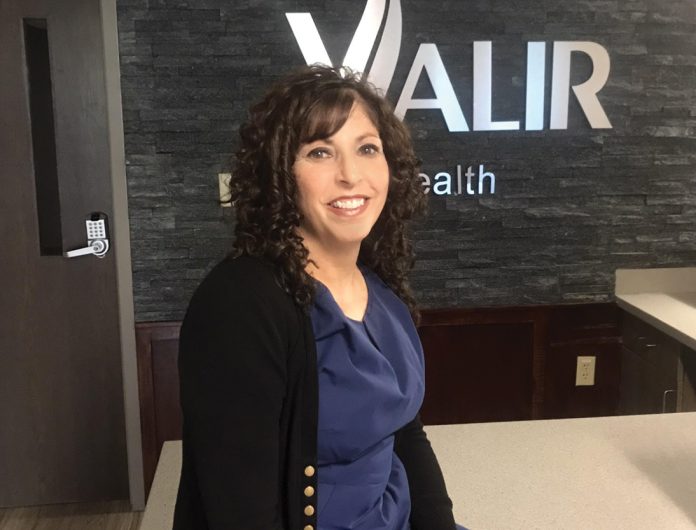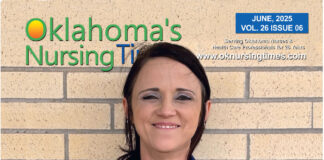by James Coburn – staff writer
Renee Norton, LPN, loved her clinical work at Valir Rehab during nursing school five years ago when attending Platt College in Oklahoma City.
“As soon as I came here, I applied. I knew I was going to come here and work,” said Norton, who works with rehabilitating brain injury patients. “I guess I like that there are always different patients. There are always different things to learn that I’m not going to learn anywhere else.”
Norton said she found a Valir Rehab nursing staffer who listens to their patients and makes sure every patient knows that they matter. (STORY CONTINUES BELOW)
Valir utilizes a team-based care approach providing a personalized, comprehensive healthcare plan to those without access to quality healthcare. It provides a clinic and gym and offers speech therapy, occupational therapy, physical therapy, medicine and counseling under the guidance of doctors, nurses, social workers, and therapists. A daycare center offers meals for those in need.
Valir navigates them to be the strongest they can. They learn how to remain safe at their personal best.
Norton strives to do her duty well and thoroughly as she responds to the needs of patients. This makes her day go smoothly. Patients generally stay at Valir for seven to 10 days, she said. But a brain injury usually requires more time, she added. Patients may have hit their head, been in a vehicle collision or had a stroke, among other causes that have altered their brains.
Processing stimuli can overwhelm patients with a brain injury. Lighting and sound are set at a minimum in the brain injury rehabilitation unit. Even the hallway lights are set low. Reducing sensory stimulation has a calming effect as patients can focus on getting better in an environment of reduced stress. Patients are able to respond better to therapy. And step by step, Norton begins seeing her patients heal.
“I like to see their advancement. That’s the best part, seeing the difference in how well they’re doing,” Norton said.
Norton said patients living with a traumatic brain injury will get the best care possible at Valir.
“I feel like you’re not going to find that anywhere else but here,” she said. “You’re not going to get the care that you get here. It’s going to help the patient advance more than anywhere else.”
Her care provided to each patient is unconditional regardless of what they might have done in the past. It’s important to show respect to each patient, she said. Everyone is equal.
“I feel the biggest thing is probably listening,” Norton continued.
She remembers that she has always been attentive to the needs of others, a quality that drives her nursing career. Her altruism became more pronounced by having a special needs daughter. Doctors told her that her daughter would not survive beyond age 2. But she lived until she was 17, Norton said.
“She had a lot of bad nurses and a few that were really good,” said Norton, who vowed to become a good nurse for positive change. “When she passed away, I felt lost, and I feel like it saved me to become a nurse. I liked the fact that I was doing something greater than just taking care of myself. And once I became a nurse I just started feeling better again. I like helping people — I like giving them hope — I like letting them know that they’re important and they can do this.”
Valir is like family for Norton.
“I really want people to know that they matter, and that you’re not just another person,” she said.
So, she approaches each patient with love. Patients who have had a stroke may not understand what has happened. She knows they have questions but may not be able to speak. Norton will tell them that she had a stroke. It took her a long time, but she got past it, she says. Norton reassures them that she is here for them, and their inability to speak is normal.
“You’re helping them because they don’t want to be there,” Norton said. “They’re embarrassed and you want to help them get better. I always tell them it’s okay, ‘We’re going to get past this point. It gets better.’”
When at home, she has a day of zoning out. Norton said she is more like that as she has become older.
“I give out a lot, so I have to regroup,” she said. “But that’s what I want to be so I’m okay with that.” For more information visit: https://www.valir.com/ .













